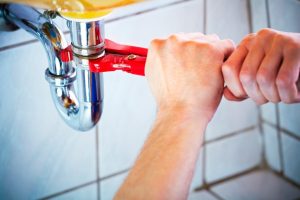 So, you want to buy and hold a rental property. Maybe you inherited a house that you’d like to keep and turn into a rental. Maybe you’re looking to upgrade your own home, but want to keep it to rent out for extra monthly income. Whatever your method of acquiring a rental property, they are great ways to have a steady monthly income streams to help support your retirement or daily living expenses. Not to mention the appreciation, equity buildup, and tax benefits which your CPA can better explain.
So, you want to buy and hold a rental property. Maybe you inherited a house that you’d like to keep and turn into a rental. Maybe you’re looking to upgrade your own home, but want to keep it to rent out for extra monthly income. Whatever your method of acquiring a rental property, they are great ways to have a steady monthly income streams to help support your retirement or daily living expenses. Not to mention the appreciation, equity buildup, and tax benefits which your CPA can better explain.
Do you know how to be a landlord? What it entails?
In addition to navigating all the laws, rules, and regulations put on you as the landlord, are you prepared for the financial expense of owning rental property? Even if you hire a professional property manager like Rental Guys Property Management to help you with the burden of finding a qualified tenant and the day to day operations, as the property owner, there will be things you are responsible for. Those are called Operating Expenses and it’s very important to account for these as a landlord to help you have a successful experience of owning a rental property.
What Operating Expenses do I need to account for with my rental property?
When owning rental property, there are 7 main expenses you will have on the property no matter what, whether you have a mortgage or not. You will always want to account for: Taxes, Insurance, Vacancy, Maintenance, Repairs, Advertising, and Management.
As you live the life of a landlord, you’ll be able to fine tune these actual expenses with time, but as a general rule of thumb you should account for 30-40% of the monthly rent as operating expenses. Taxes and Insurance are things that MUST be paid so you should put some money aside for that and they’re fairly easy to calculate how much you’ll need on a monthly basis. The other items can fluctuate and will vary from property to property. For instance, to better gauge how much you should save for repairs/capital expenditures (big items like a roof, HVAC, plumbing), you’ll want to ask yourself:
- Has the roof been replaced recently?
- When was the HVAC updated?
- Have I replaced plumbing?
In other words, what condition is the house in when you begin to rent it out? If these bigger items have been done recently, it’s unlikely you’ll need those again soon. However, it would be smart to still account for them today even as a small percentage for when the next time does come up. Roofs, HVAC’s, water heaters, appliances etc. all have a life spans. Always be prepared.
The fact is owning rental property will have issues.
There may be maintenance issues or full blown repairs/replacements or even bringing the house up to date with current trends or standards. Wouldn’t it be nice to not wonder where this money will come from when it’s time for a new kitchen, or a plumbing repair, new appliance, or a new HVAC unit? Plus, if at the end of the year you didn’t have to use it and have extra…who’s complaining?
If you put aside and save a small percentage of each monthly rent that’s collected, when issues arise it will be a lot less stressful knowing the money is already there. This will also allow you to have the issues fixed promptly to keep your tenants happy. Landlords showing their tenants that they take care of their property (investment) quickly, makes for happy tenants. Happy tenants generally like to renew their lease which will help keep your vacancy expenses down.
Looking for an investment property in the Jacksonville FL area? We can help! Contact us today.